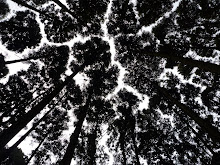When I was in Japan in the first part of last year, I came across these wonderful Fuji stickers. I guessed that the red Fuji was for sunset or sunrise, and that the hawks where something do with the birds you usually see once you are up at that altitude, but for the life of me I could not work out what the eggplants where for. The mystery remained unsolved till I came home from my second trip in September and my dear friend Anna lent me a book- 100 views of Mount Fuji by Timothy Clark which is a catalogue that accompanied an exhibition of works mostly from the British Museum's collection. (this is not a very good review but is more or less summarises parts of the book)
The following information included in relation to a print "Three Lucky Dreams of the New Year" by Koryusai-ga. (Without the explanation I would have thought the print to be of two women, but it's a young man is holding the hawk.) There is an expression for good luck dreams on the New Year:
One Fuji, two hawk, three aubergine
Ichi Fuji, ni taka, san nasubi
Which I why I guess there are two hawks an three eggplants- Not sure if there is a significance to the 21 Mount Fuji's- Any ideas? The text is a good mix between scholarly writing and accessible information. Clark gives a good description of the work and also footnotes where you can chase up additional information or facts that back his options. The following quote has footnotes but I wont include them here.
The saying is said to list the famous products of Suruga Province, or alternatively, in a version attributed to Tokugawa Ieyasu, the three highest things in Suruga Province : Mt Fuji, Mt Ashitaka (sounds like taka, hawk) and the exorbitant price of the earliest aubergines of the season.
The generic 'taka' is used in the name of two Japanese birds- O-taka: Northern Goshawk (Accipter gentilis), which I saw at Oi-Yacho Koen; and Hai-taka: European Sparrow Hawk (Accipter nisus). There is also another Accipter: gularis: Japanese Lesser Sparrow Hawk, but in Japanese it does not have "taka" in its common name: Tsumi. (in case you stumbled upon this blog via Fuji searches or Shunga mostly likely- I also have another blog that has covers my nature interests and birdwatching- Tokyo Bird Song)






Cho-kawaii! Makes me want to eat eggplant. Takara!
ReplyDelete